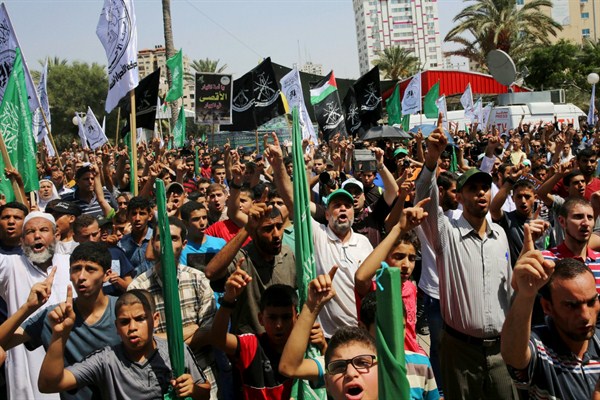Over the summer, Palestinian President Mahmoud Abbas issued a vague decree restricting freedom of expression on social media and online news sites, ostensibly to uphold “national unity” and the “social fabric.” Critics slammed the measure as an attempt to censure criticism of the Palestinian Authority. In an email interview, Charmaine Seitz, a consultant on the Middle East who formerly reported from Israel and the West Bank and Gaza, explains what’s behind the move, its impact on civil society, and how both the Palestinian Authority and Hamas have curbed dissent.
WPR: What steps has the Palestinian Authority taken to clamp down on the media, including social media, and free expression in the West Bank?
Charmaine Seitz: There was an alarming shift in the West Bank after Abbas, in late June, signed an “electronic crimes law” that criminalizes online dissent against the authorities, allowing prison sentences for a range of offenses, including “violating the public order and morals.” It also imposes punishment for electronic leaks. The law was essentially an executive order, as the Palestinian parliament has not functioned for years because of factional infighting. Just before the law came into force, 29 news websites, most of them affiliated with political rivals or critical of the Palestinian Authority, were blocked. As of Aug. 23, Amnesty International reported that six individuals, five of them journalists, had been detained and charged under the law. On Sept. 4, activist Issa Amro was detained by Palestinian security forces for criticizing on Facebook the arrest of a journalist; in an irony that did not escape the public, Amro is also in the process of being tried in an Israeli military court for incitement and other charges. He has since been released from Palestinian custody on bail after an international outcry.

